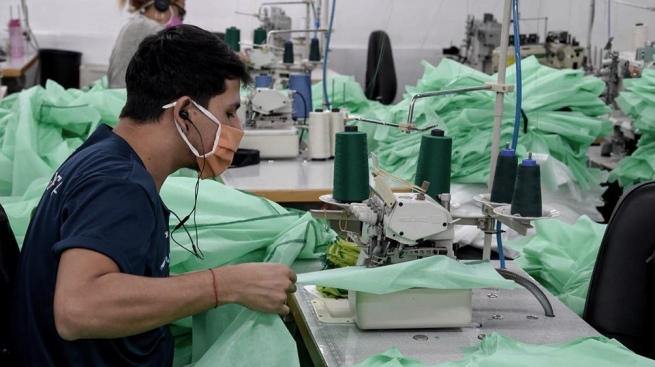SME companies had positive profitability and a good level of sales in the first quarter of the year, while the Most plan to make investments, despite the increase in costs and expectations of higher inflation.
This was reflected by survey of economic expectations carried out by the Association of National Entrepreneurs for Argentine Development (ENAC) among 558 SMEs (73.66%), self-employed -self-employed or professionals- (23.30%) and cooperatives (3.04%) throughout the country.
80% of the companies consulted had reasonable sales: 45.6% declared that their sales were between good and very good in the first quarter of the year, 34.39% said that they were regular and only 16.59% indicated that they were bad .

“In the results we see the glass half full that has to do with the Government’s successes and half empty that has to do with challenges that it has to address that can put at stake the post-pandemic exit from the internal market,” said Leo Bilanski, president of the ENAC.
When presenting the report, Bilanski said that the sales data “is clearly positive, there are plenty of sales in our sector, in that scheme we are doing very well.”
Regarding the costs of goods and services, nine out of 10 companies recorded cost increases in the period: 69.8% stated that the increases exceeded 20% and 26.7% placed them between 0 and 20%.
“In the results we see the glass half full that has to do with the Government’s successes and half empty that has to do with challenges that it has to address that can put at stake the post-pandemic exit from the internal market”Leo Bilansky
Cesar Guereta, a member of the board of directors, said that “in cost increases, the value is too high, we see it as something quite negative, that impacts when SMEs have to put a price on their products.”
Bilanski related the occupancy level (59.14% of the companies operated between 60% and 100% of their installed capacity) with the fact that there are “SMEs that cannot be reintegrated into the market as a result of being dead for two years, without financing or that they have gotten into a maze of debts”, for which production “is redistributed among fewer companies”.

Meanwhile, 44.6% of SMEs had positive profitability between January and March, and in the case of industrial SMEs, positive profitability amounts to 55.4%.
The majority of companies (68.1%) project inflation above 50% for this year and expressed their opinion about the measures that should be taken to reduce it: 43.01% considered the demonopolization of value chains necessary, while 37 .46% referred to the importance of reducing the fiscal deficit.
One of the factors that determines inflation is “the misappropriation of income” and that “in a situation of economic emergency, poverty, post-pandemic, it would not be reasonable, supportive or constructive for the future of Argentines,” Bilanski said.
Bilanski pointed out that one of the factors that determines the level of inflation is “the misappropriation of income” and that “in a situation of economic emergency, poverty, post-pandemic, it would not be reasonable, supportive or constructive for the future of Argentines.”
“We ask that this component be worked with maximum hardness, that they go to the bone and control the big price makers, who are the ones that affect us directly,” he added.
According to the survey, 55.2% of companies plan investments in the next six months; likewise, 35.66% expect the country’s economic situation to improve somewhat or a lot, 19.53% anticipate that it will remain stable, and 42.3% project an economic worsening by 2022.
















